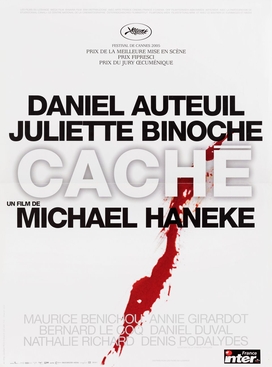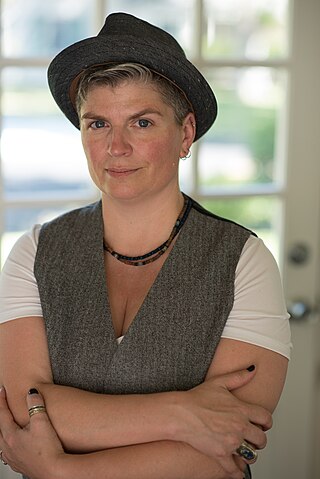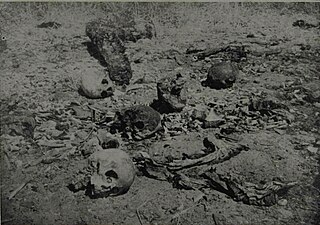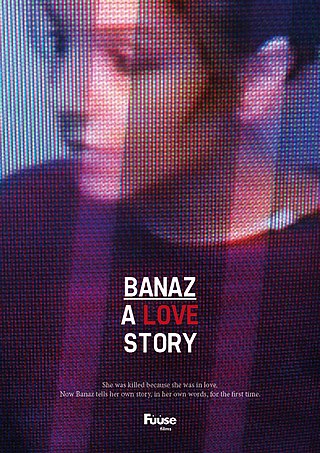
Forgetting or disremembering is the apparent loss or modification of information already encoded and stored in an individual's short or long-term memory. It is a spontaneous or gradual process in which old memories are unable to be recalled from memory storage. Problems with remembering, learning and retaining new information are a few of the most common complaints of older adults. Studies show that retention improves with increased rehearsal. This improvement occurs because rehearsal helps to transfer information into long-term memory.

Bowling for Columbine is a 2002 documentary film written, produced, directed, and narrated by Michael Moore. The documentary film explores what Moore suggests are the primary causes for the Columbine High School massacre in 1999 and other acts of gun violence. He focuses on the background and environment in which the massacre took place and some common public opinions and assumptions about related issues. The film also looks into the nature of violence in the United States, and American violence abroad.

After Life, known in Japan as Wonderful Life, is a 1998 Japanese film edited, written and directed by Hirokazu Kore-eda starring Arata, Erika Oda and Susumu Terajima. It premiered on 11 September 1998 at the 1998 Toronto International Film Festival and distributed in over 30 countries, bringing international recognition to Kore-eda's work.

Krishnan Guru-Murthy is a British journalist. He is the lead presenter of Channel 4 News. He also presents Unreported World, a foreign-affairs documentary series.

The March of the Living is an annual educational program which brings students from around the world to Poland, where they explore the remnants of the Holocaust. On Holocaust Memorial Day observed in the Jewish calendar, thousands of participants march silently from Auschwitz to Birkenau.

Caché, also known as Hidden, is a 2005 neo-noir psychological thriller film written and directed by Michael Haneke and starring Daniel Auteuil and Juliette Binoche. The plot follows an upper-middle-class French couple, Georges (Auteuil) and Anne (Binoche), who are terrorised by anonymous tapes that appear on their front porch and seem to show the family is under surveillance. Clues in the videos point to Georges's childhood memories, and his resistance to his parents' adopting an Algerian orphan named Majid, who was sent away. The tapes lead him to the now-grown Majid.

Khudai Khidmatgar was an Indian, predominantly Pashtun, nonviolent resistance movement known for its activism against the British Raj in colonial India; it was based in the country's North-West Frontier Province.

The Qissa Khwani massacre in Peshawar, North-West Frontier Province, British India on 23 April 1930 was an armoured vehicle-ramming attack and mass shooting of the unarmed civilian freedom fighters by the British colonial troops, which consequently became one of the defining moments of the independence movement in British India.
Hyperthymesia, also known as hyperthymestic syndrome or highly superior autobiographical memory (HSAM), is a condition that leads people to be able to remember an abnormally large number of their life experiences in vivid detail. It is extraordinarily rare, with fewer than 100 people in the world having been diagnosed with the condition as of 2021. A person who has hyperthymesia is called a hyperthymesiac.

The 2002 Gujarat riots, also known as the 2002 Gujarat violence or the Gujarat pogrom, was a three-day period of inter-communal violence in the western Indian state of Gujarat. The burning of a train in Godhra on 27 February 2002, which caused the deaths of 58 Hindu pilgrims and karsevaks returning from Ayodhya, is cited as having instigated the violence. Following the initial riot incidents, there were further outbreaks of violence in Ahmedabad for three months; statewide, there were further outbreaks of violence against the minority Muslim population of Gujarat for the next year.

The Kilvenmani massacre was an incident in Kizhavenmani village, Nagapattinam district of Tamil Nadu state in India on 25 December 1968 in which a group of around 44 people, the families of striking Dalit village labourers, were murdered by a gang, allegedly led by their landlords. The chief accused was Gopalakrishnan Naidu.

Prajwala is a non-governmental organization based in Hyderabad, India, devoted exclusively to eradicating prostitution and sex trafficking. Founded in 1996 by Ms. Sunitha Krishnan and Brother Jose Vetticatil, the organization actively works in the areas of prevention, rescue, rehabilitation, re-integration, and advocacy to combat trafficking in every dimension and restore dignity to victims of commercial sexual exploitation.
The Nellie massacre took place in central Assam during a six-hour period on the morning of 18 February 1983. The massacre claimed the lives of 1,600–2,000 people from 14 villages—Alisingha, Khulapathar, Basundhari, Bugduba Beel, Bugduba Habi, Borjola, Butuni, Dongabori, Indurmari, Mati Parbat, Muladhari, Mati Parbat no. 8, Silbheta, Borburi and Nellie—of Nagaon district. The victims were Muslim of illegal Bengali origin. Three media personnel—Hemendra Narayan of The Indian Express, Bedabrata Lahkar of The Assam Tribune and Sharma of ABC—were witnesses to the massacre.

The 7th March Speech of Bangabandhu, or the 7/3 Speech, was a public speech given by Sheikh Mujibur Rahman, the founding leader of Bangladesh on 7 March 1971 at the Ramna Race Course in Dhaka to a gathering of over one million (1,000,000) people. It was delivered during a period of escalating tensions between East Pakistan and the powerful political and military establishment of West Pakistan. In the speech, Bangabandhu informally declared the independence of Bangladesh, proclaiming: "The struggle this time, is a struggle for our liberty. The struggle this time, is a struggle for our independence." He announced a civil disobedience movement in the province, calling for "every house to turn into a fortress".

Sunitha Krishnan is an Indian social activist and chief functionary and co-founder of Prajwala, a non-governmental organization that rescues, rehabilitates and reintegrates sex-trafficked victims into society. She was awarded India's fourth highest civilian award the Padma Shri in 2016.

Heather E. Connell is an American film director. She is best known for directing the award-winning feature documentaries Small Voices: The Stories of Cambodia's Children (2008) and Forget Us Not (2013).

Nostalgia for the Light is a 2010 documentary film by Patricio Guzmán to address the lasting impacts of Augusto Pinochet's dictatorship. Guzmán focuses on the similarities between astronomers researching humanity's past, in an astronomical sense, and the struggle of many Chilean women who still search, after decades, for the remains of their relatives executed during the dictatorship. Patricio Guzmán narrates the documentary himself and the documentary includes interviews and commentary from those affected and from astronomers and archeologists.

The 1947 Rawalpindi massacres refer to widespread violence, massacres, and rapes of Hindus and Sikhs by Muslim mobs in the Rawalpindi Division of the Punjab Province of British India in March 1947. The violence preceded the partition of India and was instigated and perpetrated by the Muslim League National Guards—the militant wing of the Muslim League—as well as local cadres and politicians of the League, demobilised Muslim soldiers, local officials and policemen. It followed the fall of a coalition government of the Punjab Unionists, Indian National Congress and Akali Dal, achieved through a six-week campaign by the Muslim League. The riots left between 2,000 and 7,000 Sikhs and Hindus dead, and set off their mass exodus from Rawalpindi Division. 80,000 Sikhs and Hindus were estimated to have left the Division by the end of April. The incidents were the first instance of partition-related violence in Punjab to show clear manifestations of ethnic cleansing, and marked the beginning of systematic violence against women that accompanied the partition, seeing rampant sexual violence, rape, and forced conversions, with many women committing mass suicides along with their children, and many killed by their male relatives, for fear of abduction and rape. The events are sometimes referred to as the Rape of Rawalpindi.

Banaz: A Love Story is a 2012 documentary film directed and produced by Deeyah Khan. The film chronicles the life and death of Banaz Mahmod, a young British-Iraqi woman of Kurdish origin killed in 2006 in South London on the orders of her family in what is euphemistically called honour killing. The film received its UK premiere at the Raindance Film Festival in London September 2012.
The Malisbong Masjid or H. Hamsa Tacbil Mosque massacre, also called the Palimbang massacre, was the mass murder of Muslim Moros by units of the Philippine military on September 24, 1974, in the coastal village of Malisbong in Palimbang, Sultan Kudarat, Mindanao. Accounts compiled by the Moro Women's Center in General Santos state that 1,500 male Moros aged 11–70 were killed inside a mosque, 3,000 women and children aged 9–60 were detained – with the women being raped – and that 300 houses were razed by the government forces. The massacre occurred two years after Ferdinand Marcos declared martial law in September 1972.
















